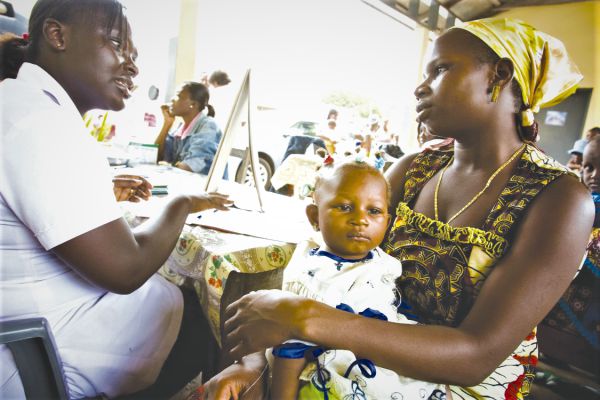Over the festive season, our thoughts naturally turn to our families and our plans for the New Year ahead.
As we welcome the beginning of another year, there are three essentials that everyone wishes for himself/herself, his/her family, friends and communities.
These are of course health, wealth and happiness: vital ingredients for a fulfilled and dignified life.
I have worked for many years in the field of health care helping mothers, newborns, children and adolescents to unlock their very own healthy future.
I am enormously proud of Ghana’s success and ambition over the past two decades. It has been truly impressive.
However, our progress in key areas of health care during the Millennium Development Goal (MDG) era has sadly not delivered the radical changes that I wanted to see.
I know Ghana can do better. We could save more mothers. We could save more children. We could do so much more.
Looking to the future, countries with well-established, high-performing primary healthcare systems will be better equipped to combat infectious and non-communicable diseases such as HIV/AIDS, malaria and hypertension and deliver critical healthcare such as vaccines, family planning and care for newborn babies, while those with weaker systems will struggle.
We witnessed this as recently as 2014, when an outbreak of the deadly Ebola virus in West Africa particularly ravaged countries with poorly developed primary healthcare systems.
I have a strong conviction that if we are to achieve our wish for good health, we must strengthen our health system as a whole through adequate targeted financing, and successfully introduce Universal Health Coverage (UHC).
This will not be easy. Ghana is widely considered to have a high-performing primary health care (PHC) system – an essential component to achieving UHC.
Gaps
Despite this achievement, there are significant gaps in access to essential health services. The availability of quality, affordable health care remains a challenge.
At the end of 2017, only a third of Ghanaians were registered on the National Health Insurance Scheme (NHIS), suggesting that the majority of Ghanaians are vulnerable to financial challenges when they interact with our health system.
This should not be the case.
Add to that is the fact that overall health financing in Ghana is woefully inadequate, and we find ourselves in a precarious situation.
An analysis of the health budget over the last three years (2016-2018) revealed that while total allocation to the health sector remains at about seven per cent of total national budget, about 60 per cent of allocation to the health sector is spent on compensations.
Allocations for capital expansions, goods and services constitutes roughly 40 per cent or below.
Guaranteed
Unlike other countries with strong public healthcare systems, Ghana does not have a specified essential health services package.
This is a guaranteed minimum list of public health and clinical services which are provided at primary and secondary care levels.
This package is key to strengthening Ghana’s system.
Why is this? An essential health services package guarantees that you can receive a particular service at your local primary healthcare clinic.
This gives patients peace of mind that they can rely on life-saving treatment in their hour of need without the fear of being turned away, or not being able to afford medical care.
For parents, this guarantee is doubly important for their children. Knowing that your child can receive their vaccines at your local clinic allows you to plan your child’s immunisation schedule more easily.
Similar promises on family planning services allow people to know what they can expect.
A clear provision also offers you a financial guarantee that preventative services for serious health challenges – such as health screenings or mental health advice - will be covered by NHIS and not plunge your family into financial hardship.
With an anticipated increase of active membership over the next few years, total annual healthcare budget allocation for the NHIS would be approximately GH¢ 9 billion ($2,2,000,000) a year. NHIS needs about GH¢2.3 billion ($542,000,000) to function effectively.
Way forward
So what do we need to do in order to improve the situation? Establishing an essential healthcare services package as a priority will give Ghana’s health sector the clarity we need. It will set out what must be provided.
It is a vital step that Ghana’s policy makers must take to formalise our country’s public healthcare policy and lay the real foundations for achieving Universal Health Coverage.
It will serve as our road map to strengthening the services offered at our clinics and our gold standard for measuring services offered in every village, town and city in Ghana.
And ultimately, it will be our path to achieving health, wealth and happiness for ourselves, our families, friends and communities in the New Year and beyond.
The writer is the Executive Director of the Alliance for Reproductive Health Rights

